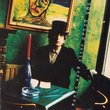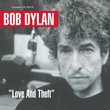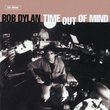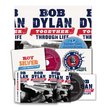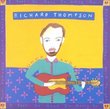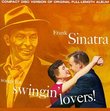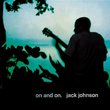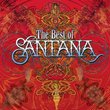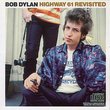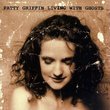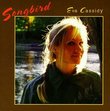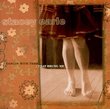| All Artists: Bob Dylan Title: Modern Times (Special Limited Edition) Members Wishing: 1 Total Copies: 0 Label: Sony Original Release Date: 1/1/2006 Re-Release Date: 8/29/2006 Album Type: Special Edition Genres: Folk, Pop, Rock, Classic Rock Styles: Singer-Songwriters, Blues Rock, Folk Rock, Album-Oriented Rock (AOR) Number of Discs: 2 SwapaCD Credits: 2 UPC: 828768768624 |
Search - Bob Dylan :: Modern Times (Special Limited Edition)
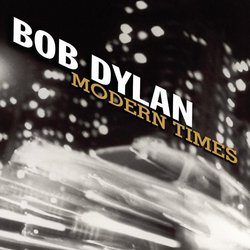 | Bob Dylan Modern Times (Special Limited Edition) Genres: Folk, Pop, Rock, Classic Rock
|
Larger Image |
CD DetailsSimilar CDs
Similarly Requested CDs
|
CD ReviewsAlbum=4 and 1/2 Stars, Edition=3 Stars Bill R. Moore | New York, USA | 09/14/2010 (4 out of 5 stars) "The Modern Times "Special Limited Edition" is necessary only for those who must have every Dylan release; the standard album will suffice for all others. Slightly different packaging aside, the only bonus is a DVD with a meager four videos. Two ("Blood in My Eyes" and "Things Have Changed") are official videos that are unusually well-done but easily available elsewhere; most will have seen them long ago and have no use for them here. "Love Sick" is the 1998 Grammy performance - a very strong take highlighted by a surprisingly killer Dylan guitar solo but also old news. The only previously unreleased video is a live "Cold Irons Bound" left over from the infamous Masked & Anonymous film. It is a very good performance but similar to most 2000s live renditions of the cut, and casuals must decide whether or not it makes the "Special Limited Edition" worth buying.
As for the album itself, given Bob Dylan's living legend status and late career renaissance, early reaction was understandably somewhat hyperbolic, with many declaring it equal to his best work. Enough time has passed for us to admit otherwise, but it is still an excellent, near-masterful latter-day high point. No masterpiece but stunningly close, it is the near-equal of its great predecessor Love and Theft. Despite a few weak spots and other minor caveats, it has three full-blown masterworks ("When the Deal Goes Down," "Workingman's Blues #2," and "Ain't Talkin'") and several other very high quality works - truly remarkable for an artist as far into his career as Dylan. This puts Modern near the top of Dylan's second tier, which is above nearly anyone else's best and easily one of the 2000s' best albums. Modern in one sense continues the trend that began with 1997's comeback album Time Out of Mind - or, really, the two solo acoustic traditional folk albums before it - of delving deep into American music's bottomless well. Dylan has of course done so throughout his career, but age and experience lend additional authenticity and gravitas. Though less musically eclectic than Love, this is another whirlwind Americana tour, revisiting several stops and embarking on new ones. With 10 songs - none less than 5 minutes and one nearly 9 - spread over 63 plus minutes, it is clear that Dylan intended a major statement, and he indeed made one. The first and most dominant genre is blues. Dylan's career has always incorporated blues, but he seems to feel more and more comfortable with it as he ages, having long ago become - as many have noted - the greatest living white blues singer. This has his take on the classic "Rollin' and Tumblin'" as well as "Someday Baby," a riff on the standard "Trouble No More." As both are most closely identified with Muddy Waters, his spirit clearly pervades the album strongly. Both songs are quite close to his arrangements, especially "Rollin'," and these are neither the best nor the worst versions musically, though fans will certainly appreciate the almost fully rewritten words. "The Levee's Gonna Break" updates Memphis Minnie/Kansas Joe's legendary "When the Levee Breaks" and just may nod at Hurricane Katrina. Much has been made of these songs' similarities to prior works, but that is exactly the point; blues is communal and traditional, with participants borrowing from and adding to other songs. Dylan is essentially a folk musician, meaning he has always operated in a similar style, but also a bluesman to nearly as strong an extent, and simply puts his spin on these well-worn works. He has earned the right and does it well. Though not revolutionary in terms of the songs or in his own canon, his versions are high quality and very enjoyable. "Thunder on the Mountain" meanwhile mixes the jump blues prominent on Love - while also recalling that album's seemingly stream-of-consciousness lyrics, including a sly 9/11 reference - with liberal doses of Chuck Berry and rockabilly. Between all this and an unusually fast-paced vocal, it is the kind of song that those who swear they dislike Dylan will find hard to resist. Modern at any rate has a large amount of music that is almost the opposite of blues - the Rat Pack balladry of which Dylan showed himself to be surprisingly fond on Love. He embraces it even more overtly on "When the Deal" and "Beyond the Horizon." The former's melody is based on Bing Crosby's signature "Where the Blue of the Night (Meets the Gold of the Day)," but the song is very much Dylan's thanks to some of his most poetic, profound, and beautifully emotional lyrics as well as a mesmerizing vocal. "Beyond" sticks more closely to its prototype - "Red Sails in the Sunset," also done by Crosby among many others - and is far more typical genre work. Those who dislike Dylan's turn to this kind of music can use it as ammo, but "When" more than silences them. "Spirit on the Water," happily featuring Dylan's first harmonica on album since Time's "Tryin' to Get to Heaven," is somewhere between them - but certainly closer to "Beyond" - in quality and originality. The three uncategorizable songs - "Workingman's," "Nettie Moore," and "Ain't" - are among the best. The first is a musical tour de force ranging well beyond what Dylan is usually thought capable of, with a superb melody and stunningly beautiful, classical-esque piano proving yet again that he is highly underrated on the instrument. It also has some of his greatest lyrics, shot through with fantastic rhyming, intricately woven literary allusions, and his most overt politics since 1983's Infidels. The vocal is also masterful. All told, the song is a true work of art that the young Dylan, however much greater in many ways, probably could not have made. "Nettie" is Dylan's closest thing musically to traditional folk since the aforementioned acoustic albums, but the lyrics are undeniably Dylanesque. A strange hybrid of the seemingly ancient and distinctly cutting edge, the song is endlessly interesting and somewhat beguiling; after more than four years and innumerable listens, I still do not really know what to make of it. At first I thought it a masterpiece, but I have at times come near to thinking it formlessly hollow. I now lean more toward the former, but the fact that the song remains so absorbing is a high tribute at any rate. "Ain't" also mixes a traditional folk sound with soaring violin but has lyrics that are the opposite of ambiguous. Mixing musical and literary sources with his own dark imagination, Dylan crafted a lyrical milestone that is nothing less than one of the blackest and most misanthropic songs ever - a deep, thought-provoking, and truly unforgettable word melding. Such lyrical greatness is hardly ever seen on paper, much less heard in song, and only Dylan weld it. As if this were not enough, he also snarls and snaps it out in a perfectly appropriate curmudgeon/troubadour rasp. All this makes a great album but not quite a perfect one. Its further pursuit of blues and swing ballads certainly invites the criticism that Dylan is becoming musically formulaic. Perhaps more importantly, the words are certainly below par on the weaker tracks. To say nothing of an arguable over-reliance on blues commonplaces elsewhere, nearly all of "Spirit" and "Beyond" could have been written by anyone. This can hardly ever be said of Dylan, but these are so weighed down by clichés and triteness that it is undeniable. A further criticism is that several cuts - notably "Thunder" and "The Levee's" - are not as peppy as they should be. Given that Dylan self-produced and used his crack touring band, the low-key pace is clearly deliberate, but the songs would be more engaging if they were as upbeat as much of Love. Dylan seems to have realized this, cranking them up several notches in concert to notable improvement. Despite these small gripes, Modern is a truly great album worthy of Dylan's name - essential for fans and worth checking out for the curious. " |

 Track Listings (10) - Disc #1
Track Listings (10) - Disc #1